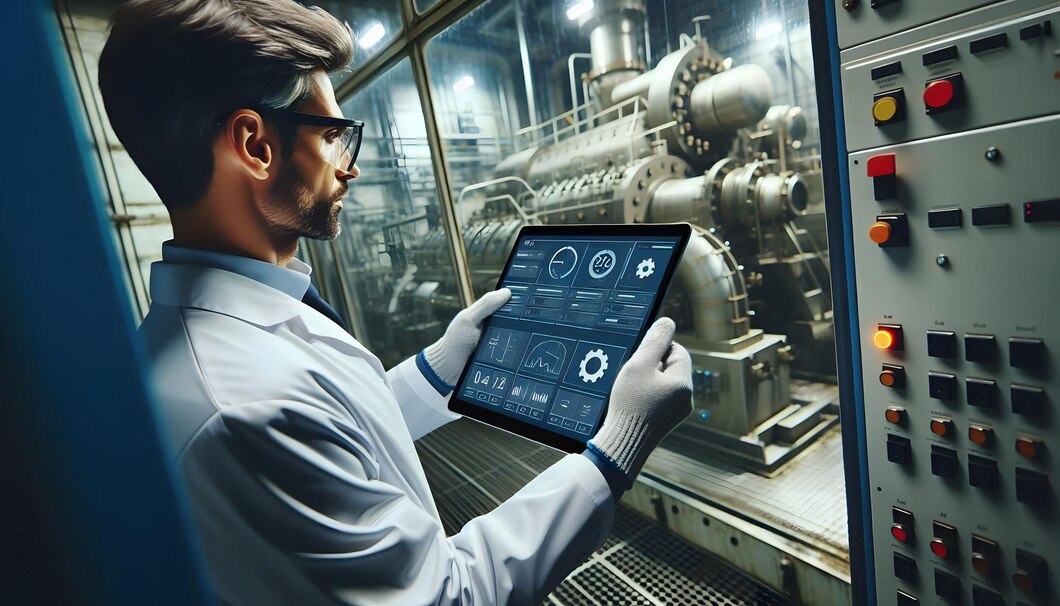The role of ERP in the manufacturing industry has constantly expanded to include more business functions, including HR, procurement, and accounting. Manufacturers are also using ERP solutions for front-end processes such as sales, marketing, and customer service.
At the same time, the manufacturing industry has undergone a massive transformation in recent times – with the enablement of digital technologies and process automation. ERP providers must contend with the growing demands of Industry 4.0 and 5.0 to enable business transformation.

What is the future of manufacturing ERP? Let’s go over some of the future ERP trends to watch out for in the manufacturing sector:
1. ERP on the Cloud
Traditional ERP tools were restricted to on-premise systems. This is slowly changing. The Cloud ERP market is expected to reach a value of $40.5 billion in 2025.
More manufacturers are adopting cloud-powered ERP for benefits like lower costs, simple deployment, and scalability. The 2020 pandemic has further accelerated the shift to cloud-based platforms. With the emergence of the cloud-based SaaS model, more ERP vendors are offering ERP solutions on a subscription model. This is also beneficial for small manufacturers who do not have the resources for on-premises ERP deployments.
2. AI-powered ERP
Among the future trends in ERP systems, we are seeing the integration of AI technology in ERP solutions. With AI enablement, manufacturers can use ERP for data analysis and improve their decision-making capabilities. The biggest advantage of AI-powered ERP is its ability to automate every business process in the organization.
Here are some of the capabilities of AI technology in ERP:
- Demand planning and forecasting
- Business analytics
- Human capital management
- Procurement-related decisions
- Exceptional customer service
AI-powered predictive analytics in ERP solutions can help manufacturers “mine” their customer data more deeply for relevant insights.
3. IoT-enabled ERP
Among the future trends, more manufacturers can benefit by integrating their ERP systems with IoT-connected devices. IoT-enabled devices can collect real-time data – and then feed this data into the ERP system. This can lead to improved operational efficiency – in the form of reduced wastage and optimized production.
Through high-quality IoT data, manufacturers can leverage their ERP investments in areas like:
- Maintenance operations
- Supply chain operations
- Business intelligence (BI)
- Quality control
4. Customized ERP
Traditional ERP systems were difficult to customize for specific business requirements. This is no longer a concern. ERP solution providers are leveraging cloud-powered ERP and low-code development tools to create industry-specific ERP solutions.
Customized ERP solutions are popular because of their lower risk and high returns on investment. For instance, business users can customize their ERP dashboards to monitor KPIs and metrics relevant to their organization.
Similarly, customizable ERP also enables manufacturers to scale up (or down) their operations depending on the current demand. As more manufacturers start using standard ERP products, customization helps in gaining a competitive advantage in the market.
5. Hybrid ERP Solutions
Another futuristic ERP trend is the combination of cloud and on-premises ERP solutions within the same manufacturing facility. This allows manufacturers to leverage the benefits of cloud ERP – while protecting their investment in on-premise ERP.
Fast-growing manufacturers can leverage cloud-powered ERP for business agility and scalability – while running their critical business processes in their on-premise ERP setup. Manufacturers can extract true value from hybrid ERP by sharing and exchanging data between the dual ERP systems.
6. Mobile ERP
Mobile-enabled ERP solutions have gradually become the norm among modern manufacturers. Mobile ERP provides real-time access to critical business data for professionals working remotely or on the move. Manufacturers can facilitate collaboration across distributed workers by installing ERP as a mobile app.
For example, sales professionals can monitor production schedules (including changes) and immediately notify their customers. Similarly, C-level executives can make informed decisions and address problems from any place by using their mobile ERP applications.
7. Third-party Integration
The future of ERP systems also lies in their ability to integrate with third-party tools such as IoT devices and CRM. ERP solutions will integrate seamlessly with more manufacturing systems, such as warehouse management and eCommerce operations.
By integrating warehouse management with ERP, manufacturers can remotely track the movement of warehouse goods through smart conveyors and mobile scanners.
Conclusion
As the manufacturing industry transitions to the Industry 4.0 era, ERP systems will evolve to become more flexible, scalable, and customizable for specific requirements. Among the future trends, the manufacturing domain will witness a growing role of AI technology in ERP systems.
Among the leading ERP service companies in India, Praxis Info Solutions has gained industry experience with its offering of customized SAP ERP software for the manufacturing industry. Our competitive SAP ERP pricing is suited for small and large manufacturers.
How is ERP set to change the future of manufacturing? If you want to know more, Contact us today.

